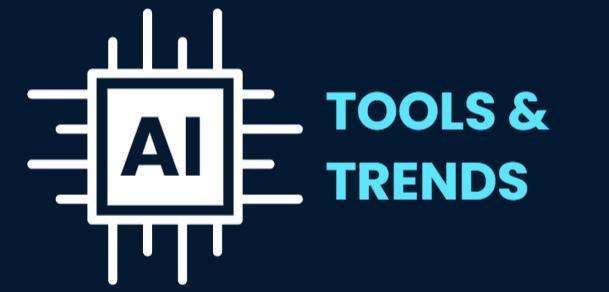
Cybersecurity and privacy are two of the most pressing issues in the digital age. As more and more data is generated, stored, and shared online, the risks of cyberattacks, data breaches, and identity theft increaseexponentially.
According to a report by IBM, the average cost of a data breach in 2020 was $3.86 million, and the average time to identify and contain a breach was 280 days.
To combat these threats, many organizations are turning to artificial intelligence (AI) as a powerful ally.
AI is the branch of computer science that deals with creating machines and systems that can perform tasks that normally require human intelligence, such as learning, reasoning, and decision making.
AI can help enhance cybersecurity and privacy in various ways, such as:
- Detecting and preventing cyberattacks:
AI can analyze large volumes of data and identify patterns, anomalies, and suspicious activities that may indicate a cyberattack.
AI can also automate the response to cyberattacks, such as blocking malicious traffic, isolating infected devices, and notifying relevant stakeholders.
For example, IBM Watson for Cyber Security is an AI system that can ingest and analyze millions of security documents and data sources, and provide insights and recommendations to security analysts.
- Protecting data and privacy:
AI can help encrypt and anonymize data, making it harder for hackers to access or misuse it.
AI can also help users control their own data and privacy preferences, such as what data they want to share, with whom, and for what purpose.
For example, Microsoft Azure Confidential Computing is a platform that enables data to be processed and analysed in a secure and encrypted environment, preventing unauthorized access even from the cloud provider.
- Enhancing user authentication and identity management:
AI can help verify the identity and authenticity of users and devices, using biometric features, behavioural patterns, and contextual factors.
AI can also help detect and prevent identity fraud, such as phishing, spoofing, and impersonation.
For example, Google’s reCAPTCHA v3 is a service that uses AI to distinguish human users from bots, without requiring users to solve puzzles or click checkboxes.
AI is not a silver bullet for cybersecurity and privacy, however. It also comes with its own challenges and limitations, such as:
- Ethical and legal implications:
AI may raise ethical and legal questions, such as who is responsible for the actions and outcomes of AI systems, how to ensure the fairness and transparency of AI decisions, and how to protect the rights and interests of users and stakeholders.
For example, AI may inadvertently discriminate against certain groups of users, or violate their privacy or consent, based on the data and algorithms used.
- Adversarial attacks and manipulation:
AI may also be vulnerable to adversarial attacks and manipulation, such as injecting false or malicious data, altering or tampering with the AI models or parameters, or exploiting the weaknesses or blind spots of the AI systems.
For example, hackers may use AI to generate fake or misleading content, such as deepfakes, or to bypass or deceive AI-based security measures, such as facial recognition.
Therefore, it is important to adopt a holistic and balanced approach to AI, that considers both the benefits and the risks, and that follows the best practices and standards for AI development and deployment, such as the OECD Principles on Artificial Intelligence or the Microsoft Responsible AI Principles.
The Bottom Line
AI is a game-changer for cybersecurity and privacy, and it will continue to evolve and improve in the future.
By harnessing the power of AI, we can create a more secure and private digital world, where users can enjoy the benefits of technology without compromising their safety or trust.
RELATED ARTICLES
- The 5 top AI trends and predictions for 2024
- The best AI podcasts, books, and blogs to follow in 2024
- The benefits and risks of using AI for personal finance and investing
- The best AI applications and use cases for small businesses
- How AI is revolutionizing the entertainment and gaming industry
- The pros/Advantages and cons/Disadvantages of using AI for social media marketing










Seeing how much work you put into it was really impressive. But even though the phrasing is elegant and the layout inviting, it seems like you are having trouble with it. My belief is that you ought to try sending the following article. If you don’t protect this hike, I will definitely come back for more of the same.
great points altogether, you just received a brand new reader.
What could you recommend about your submit that you made some days in the
past? Any positive?
If you are going for most excellent contents like myself,
only pay a visit this web page daily since it offers quality contents, thanks
That is really interesting, You’re a very skilled blogger.
I have joined your rss feed and look forward to in quest of
more of your fantastic post. Also, I have shared your website in my social networks
This is my first time pay a quick visit at here and
i am truly happy to read everthing at single place.
Good day I am so grateful I found your blog page, I really found you by error, while
I was browsing on Askjeeve for something else, Anyways
I am here now and would just like to say kudos for a tremendous post and a all round thrilling blog (I also love the theme/design),
I don’t have time to read through it all at the moment
but I have book-marked it and also included your RSS feeds, so when I have time I
will be back to read more, Please do keep up the excellent work.
What’s up, its nice post concerning media print, we
all know media is a fantastic source of facts.